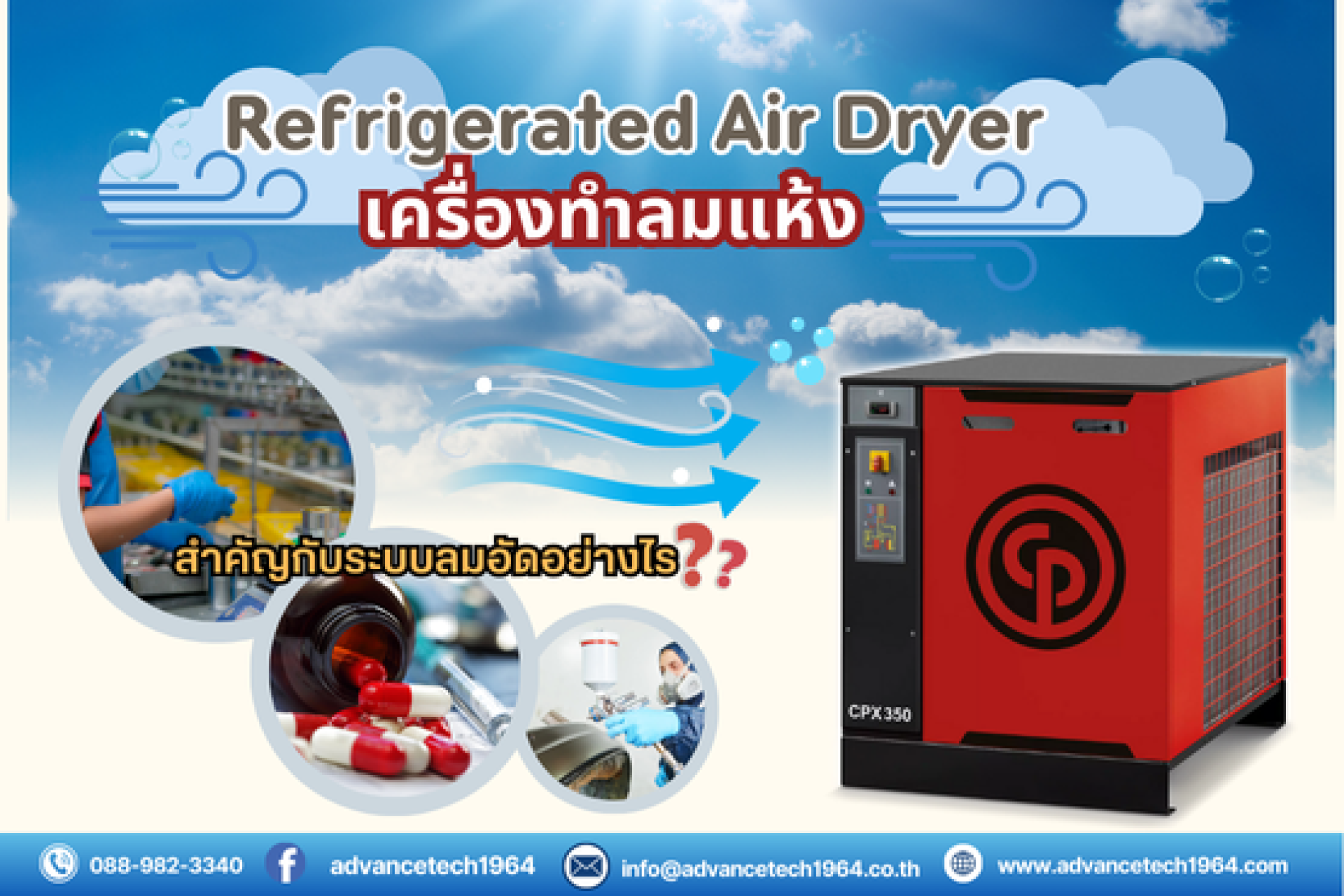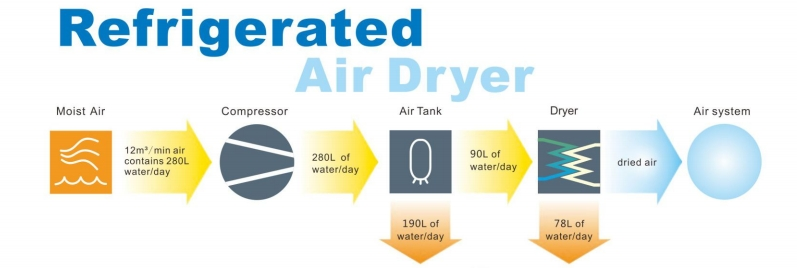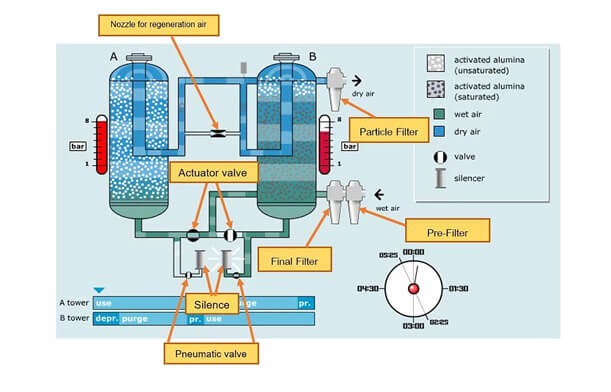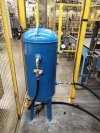What is an Air Dryer?

Air Dryers: Ensuring Clean, Dry Compressed Air
An air dryer, also known as an air dehumidifier, works hand-in-hand with an air pump or air compressor. Its main job is to cut down on the amount of water and moisture in your compressed air system, making sure the air that comes out is clean and dry.
Here's why it's so important: The air around us naturally contains moisture and water vapor. When an air compressor pulls in air from the atmosphere to compress it, this moisture and vapor come along for the ride. As the air gets squeezed into a smaller volume, its pressure shoots up, and so does the concentration of moisture and water vapor.
Now, this moisture in your compressed air system can cause a lot of headaches. It can lead to rust and corrosion in your air pipes, damage your products (resulting in lower quality), and even cause entire operational system failures. That's why an air dryer is a critical component for maintaining the health and efficiency of your pneumatic equipment and processes.
How an Air Dryer Works
The operation of an air dryer begins with the air leaving the air compressor, which contains a significant amount of water and moisture. When equipment needs this compressed air for operation, the air dryer acts as an intermediary, removing water and moisture from the air.
It does this by causing condensation to occur, either through the use of a refrigerant or a desiccant. This process makes the moisture in the air condense into liquid water, which is then drained away by the air dryer. The air that goes through this process emerges from the air dryer as dry air, ready for its intended use.
There are two primary types of air dryers, based on their operating principles:
1. Refrigerated Air Dryer : This type uses a refrigerant to cool the compressed air, causing moisture to condense.
2. Desiccant Air Dryer : This type utilizes desiccant beads to absorb moisture from the compressed air.

1. Refrigerated Air Dryer
A Refrigerated Air Dryer uses a refrigerant to cool compressed air, with a Dew Point typically ranging from 2 to 10 degrees Celsius. This process is highly effective, removing approximately 96% of water from the air. The refrigerant causes moisture to condense into water droplets, which are then drained from the system. Refrigerated air dryers are ideal for applications where dry air is needed, but extreme purity isn't a critical requirement. They are generally more affordable and easier to maintain compared to other types.

2. Desiccant Air Dryer
A Desiccant Air Dryer uses desiccant beads to absorb moisture from compressed air, achieving an extremely low Dew Point ranging from -20 to -70 degrees Celsius. Its key advantage is the exceptional dryness and purity of the air it produces. These dryers are frequently used in industries like pharmaceuticals and food processing where high levels of cleanliness are critical. However, desiccant air dryers often come with integrated cooling systems, making them about 15-20% more energy-intensive than ref
Why an Air Dryer is Necessary in a Compressed Air System
An air dryer's primary function is to remove moisture from the compressed air produced by an air compressor before it's used in production processes or other applications. This prevents water from forming in the system. An air dryer works by reducing the temperature of the compressed air from the compressor to between 2-10 degrees Celsius. It uses a refrigerant to help condense the moisture in the air into a liquid, which is then drained out.
When selecting an air dryer, it's crucial to consider the flow rate or air production capacity of the air compressor. Additionally, the temperature and humidity of the installation location must be taken into account, as these factors affect the air dryer's cooling performance. For optimal efficiency, the air dryer's size should be calculated to match the air compressor's size.
Advance Tech 1964 has summarized the importance and necessity of having an air dryer as follows:
1. Eliminates Moisture and Prevents Problems from Water in Compressed Air
Compressed air exiting the compressor has high humidity because water vapor in the air is compressed along with it. If this moisture is not removed before entering the air system, water will accumulate in pipes and various components. This can lead to: Rust in air lines
Sticking valves and cylinders Damage to machinery Contaminated air, affecting product quality
2. Prevents Rust and Corrosion
Water and moisture in the compressed air system are major culprits that cause rust and corrosion in pipes, air tanks, and pneumatic equipment. If left unaddressed, this will result in frequent repair or replacement costs.
3. Extends the Lifespan of Pneumatic Equipment
Pneumatic components such as solenoid valves, air cylinders, and air motors are expensive and sensitive to moisture. Using compressed air contaminated with water will cause these components to fail prematurely, leading to frequent repairs or replacements.
4. Maintains Product Quality and Production Processes
In certain production processes, such as the food, beverage, pharmaceutical, electronics industries, or even spray painting, 100% dry and clean air is essential. If water is present, it can damage products or prevent the production of goods that meet quality standards.
5. Reduces Costs and Increases System Efficiency
While installing an air dryer involves an initial investment, when compared to long-term costs such as equipment repairs, product spoilage, and downtime, it becomes clear that having an air dryer is a cost-effective investment that helps save future expenses.


